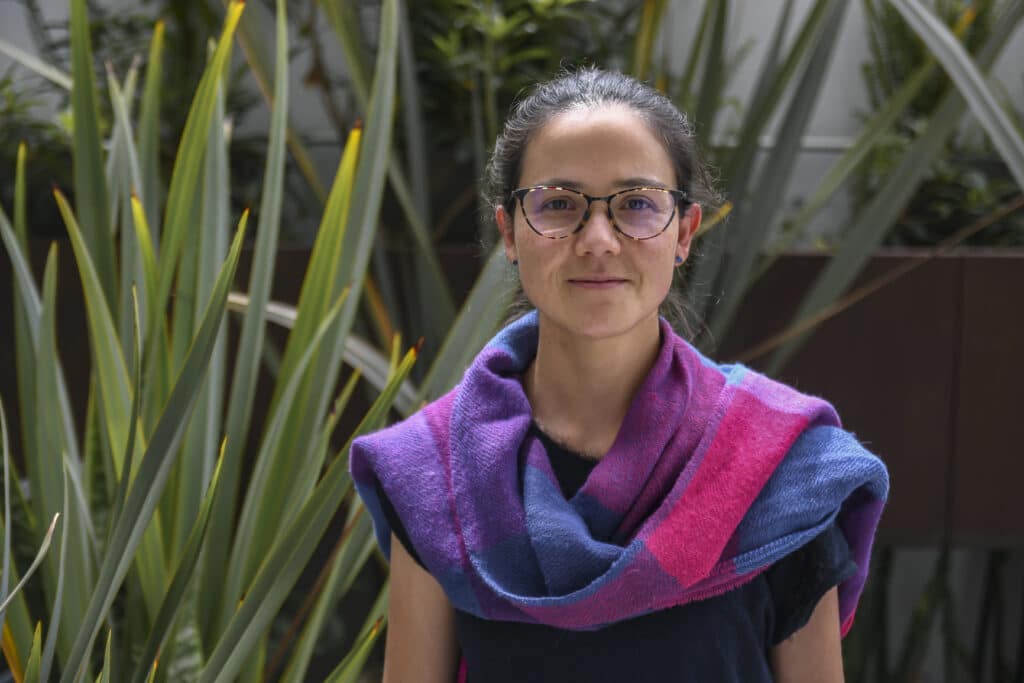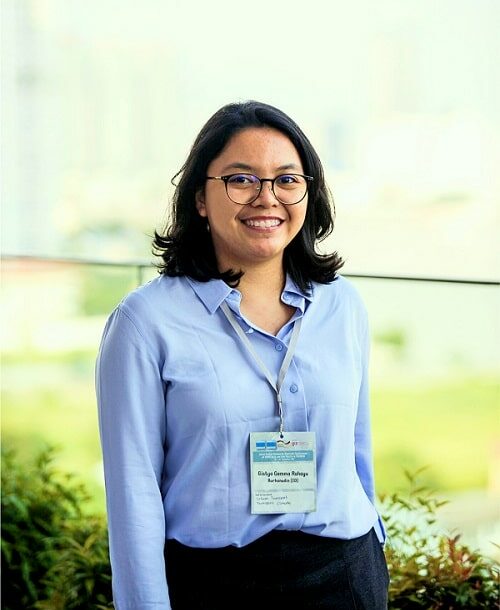
Our experts from Colombia, Uganda, Indonesia, Thailand and the UNFCCC are expirienced with the practical challenges that arise when setting up a robust Measurement, Reporting and Verification (MRV) system for the transport sector. In this webinar series they shared insights of their different transport projects. You can learn more from them in the free Transport Data: From MRV to Action online course and sign up for our newsletter.

Dr. Mónica Espinosa is an environmental engineer and has a PhD in Engineering, with particular expertise in modelling the environmental externalities of transport. She is responsible for the technical analysis of local and global pollution emission reduction scenarios, the analysis of marginal abatement costs, the definition of monitoring and reporting schemes, and the quantification of co-benefits of mitigation scenarios. She is also a member of the Bogotá Citizen Technical Committee on Air Quality. Through her work she is experienced in the application of a MRV system to the Colombian electric bus programme. As Colombian transport is responsible for 12% of total country emissions and 40% of fossil fuel consumption, transport must make a key contribution to fulfilling the ambitious national pledge of achieving a 51% reduction in emissions by 2030, as formulated by the Colombian government in its revised NDC. Among the targeted measures, electric mobility has the largest reduction potential, accounting for 65% of projected emissions savings.

Grace Mukunzi, is currently a PhD student at Lund University in Sweden. As a former Transportation Engineer at MEIR Research & Engineering, she assisted with data collection to assess the climate change mitigation potential of Uganda’s transport sector. Through her work she became an expert on the data collection process for the transport sector and the assessment of mitigation potential. The activity in Uganda aimed to support the Government in systematically assessing the country’s greenhouse gas (GHG) emissions in transport, analysing the sector’s emission reduction potentials and optimising its contribution to NDC mitigation targets. Based on the gathered data, an analysis of mitigation potentials was conducted that has empowered policymakers to make evidence-based decisions about the future of climate policy in Uganda’s transport sector.

Gemma Burhanudin is an advisor for SUTRI NAMA and INDOBUS implemented by GIZ Indonesia. She is responsible for urban transport policy and its profound impact on climate change. She plays a key role in the programme’s effort to calculate the potential emission reduction from the proposed Bus Rapid Transit (BRT) plan in the programme’s five pilot cities: Pekanbaru, Batam, Bandung, Semarang and Makassar. The MRV system is tailor-made for the project and adheres to international standards. In addition, she led the development of BRT Indonesia GHG Emissions Calculator, a tool produced by the programme to calculate GHG emission reduction from BRT implementation using a standardised methodology and data from the pilot cities.

Papondhanai Nanthachatchavankul and Marlan Pillay gained experience implementing the MRV system for Thailand’s NDC. They are experts on international MRV requirements, why a robust MRV system for NDCs is so important, future requirements and support for the international transparency system.
Papondhanai Nanthachatchavankul joined GIZ in 2012 and has since been working on the development of sustainable transport policies in the ASEAN region, with a focus on Thailand and Vietnam. He is the mastermind behind the first MRV for Transport course, developed in 2017 and conducted in Thailand as a regional activity.

Marlan Pillay is a Program Officer at UNFCCC in Bonn. He has worked at UNFCCC for the past 13 years, providing technical advice for climate change mitigation and supporting transparency in climate action. He is also a co-author of the “Compendium on GHG Baselines and Monitoring: Passenger and Freight Transport Volume” and co-organiser of the latest MRV for Transport Regional Workshop in Ha Long, Viet Nam.
The online course Transport Data: From MRV to Action is on atingi, a free learning platform financed by the German ministry for Development Cooperation. Discover more about the online course here. For more information download the course flyer here, and a content overview and course calender here. The course calendar can be used to schedule your e-learning.
Featured information about MRV